Conservative leadership: Who are the candidates?
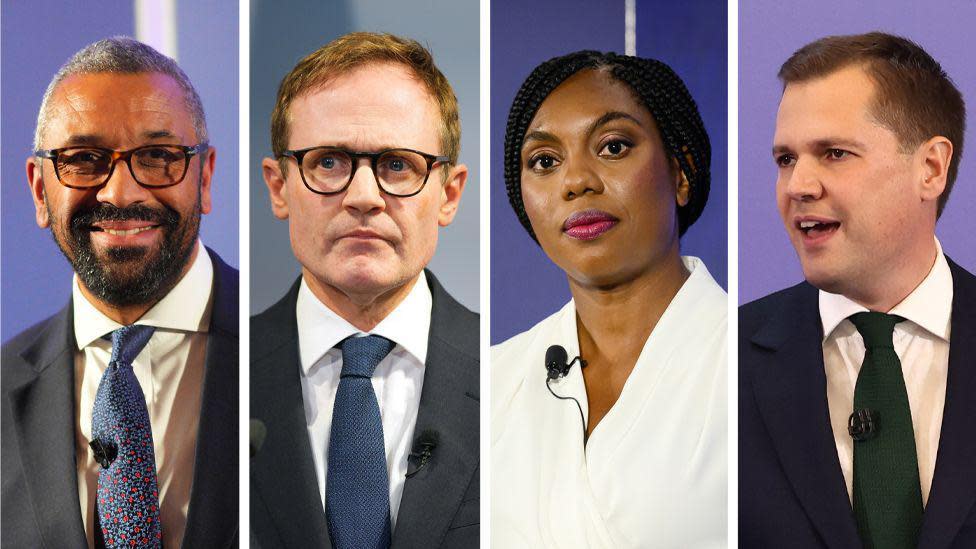
Four candidates remain in the contest to take over from Rishi Sunak as leader of the Conservative party.
Priti Patel and Mel Stride have been knocked out of the contest in votes of Tory MPs. The remaining four will now make their pitch to members at the party's conference in Birmingham.
In a series of further ballots, MPs will select the final two, with party members choosing the ultimate winner in early November.
Kemi Badenoch
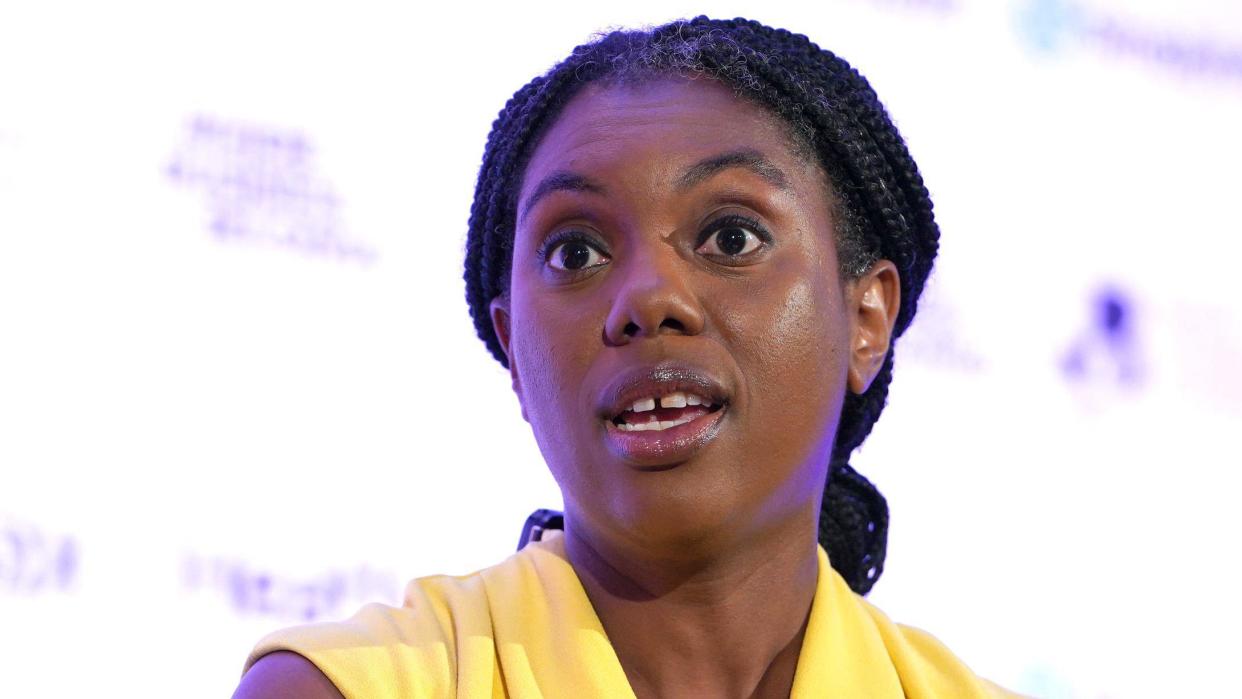
Born in London and raised in Nigeria, Olukemi Olufunto Adegoke became the Tory MP for Saffron Walden in 2017 under her married name Badenoch.
Known for her robust views and no-nonsense style, her political heroine growing up in Nigeria was Margaret Thatcher, according to Blue Ambition, a biography by Tory peer Lord Ashcroft.
She returned to the UK at the age of 16 to study for her A-levels before gaining a masters degree in computer systems engineering from Sussex University.
She became more Conservative partly as "a reaction to the very spoiled, entitled, privileged, metropolitan elite-in-training at university," she told a Spectator podcast.
Before entering politics, the 44-year-old mother of three worked in banking and IT.
She held a series of ministerial jobs under Boris Johnson, Liz Truss and Rishi Sunak, who promoted her to business secretary.
But it is arguably through her other former role - as minister for women and equalities - that she has emerged as a darling of the modern Conservative right for her stance on trans rights.
She regularly tops polls of Tory members carried out by the website Conservative Home.
She first ran for Conservative leader in 2022 following the resignation of Boris Johnson and came fourth despite starting the race with a relatively low-profile.
Launching her latest bid, she said the Conservative Party needed to "stop acting like Labour" to win back power.
James Cleverly
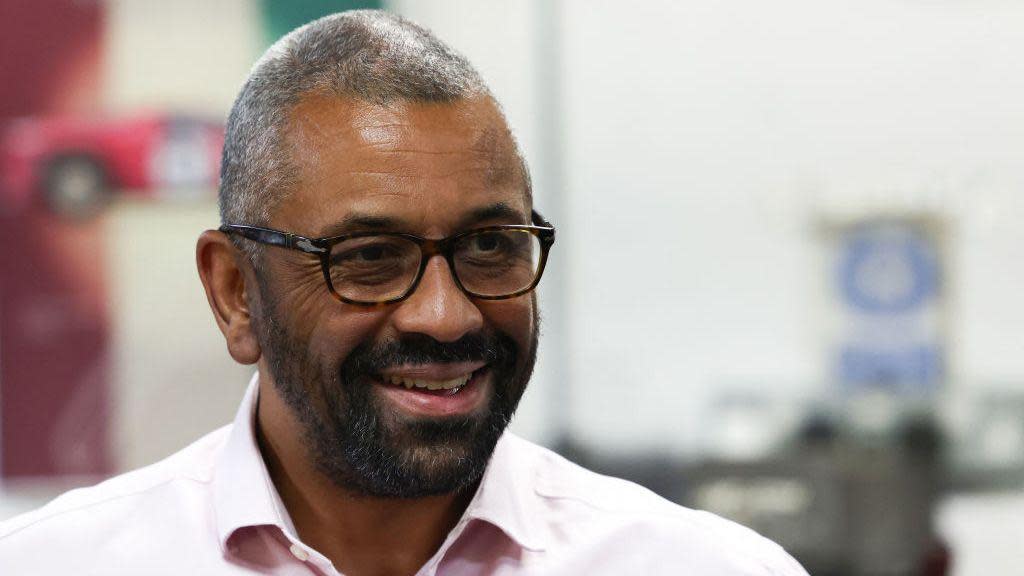
Seen as being on the "moderate" wing of the Conservative Party, James Cleverly has been an MP since 2015, rising to become foreign secretary and then home secretary.
Born and raised in south London, to an English father and Sierra Leonean mother, who worked as an NHS midwife, he was privately educated, despite the family's modest means, and joined the Army straight after school.
His full time soldiering career was cut short by a leg injury but he remains an officer in the Army reserves.
Like his leadership rival, Ms Badenoch, the 55-year-old father-of-two cut his political teeth as a member of the London Assembly.
Before entering politics, he had a career in magazine and digital publishing, before setting up his own company.
A sociable figure, who enjoys a joke, he got into hot water last year for allegedly making a derogatory remark about Stockton-on-Tees in the Commons (something he denied).
He also had to apologise for joking about spiking his wife's drink at a Downing Street reception.
He once told the Huffington Post his biggest fault was: “I talk too much and sometimes I speak a bit too frankly, which I think people like until they don’t like it.”
He spoken of his desire to "unite" the Conservatives and has urged the party to "think and act like Conservatives again".
He is also a robust defender of the previous government's policy of sending some asylum seekers to Rwanda, and has said he would bring it back if he becomes prime minister.
Robert Jenrick
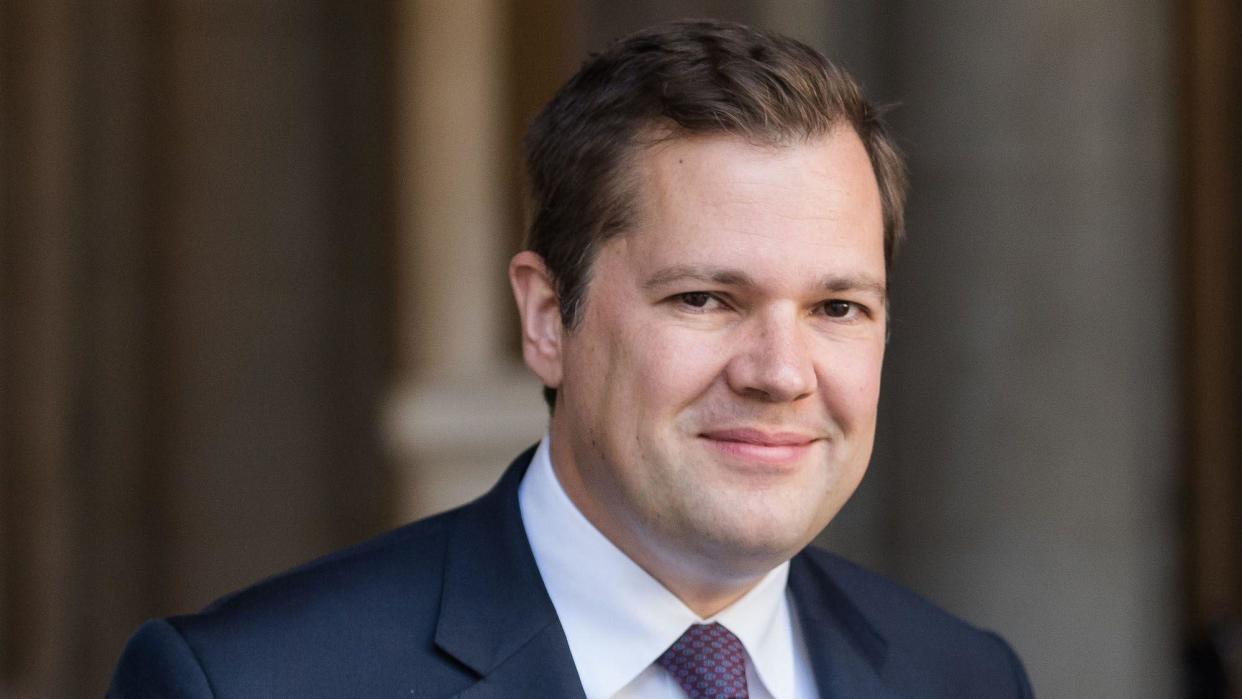
Robert Jenrick has reinvented himself as a right winger after starting his political journey as a more centrist figure and a close ally of former PM Rishi Sunak.
Last year he resigned his role as immigration minister, saying Mr Sunak's emergency Rwanda legislation did not go far enough.
And he has since been outspoken about what he sees as his party's failure to deliver on its promises to cut immigration when it was in power.
In particular, he has led calls for the UK to withdraw from the European Convention on Human Rights.
This helped to him to attract support from MPs previously loyal to his former boss at the Home Office, Suella Braverman, who ruled herself out of the leadership contest before it began.
The 42-year-old father of three was a corporate lawyer - and a director of auction house Christie's - before entering politics as the MP for Newark in 2014.
His Tory leadership pitch is that the party needs to confront hard truths - and only he can make the changes needed to win the next election.
In 2020, he was embroiled in controversy over his decision as housing secretary to grant planning permission for a housing development in east London linked to a Tory donor.
In 2023, he made headlines again for ordering that murals of cartoon characters at a reception centre for child asylum seekers in Dover be painted over.
More recently, he admitted using the weight loss drug Ozempic but said he "didn't particularly enjoy it" and went on to lose weight by more traditional means.
Tom Tugendhat
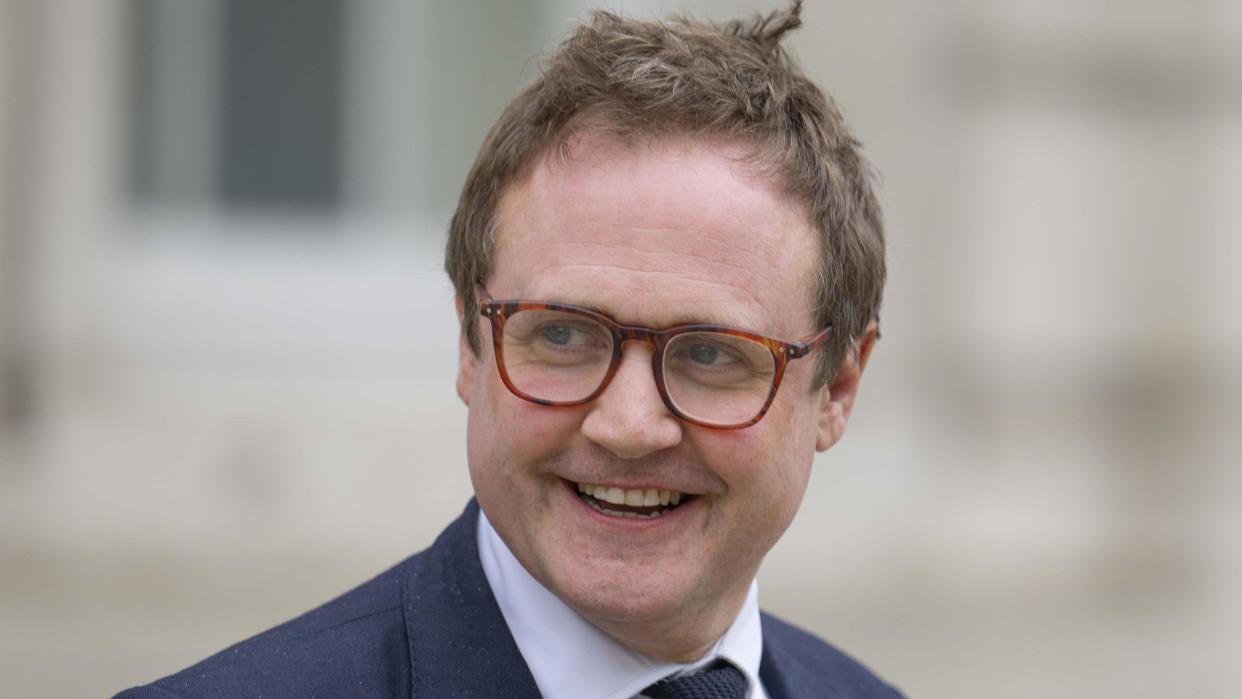
A former officer in the Territorial Army, who served in Iraq and Afghanistan, Tom Tugendhat is generally seen as a centrist.
But the shadow security minister has sought to boost his credentials with right wing MPs by taking a hard line on immigration.
At his leadership campaign launch, he pledged to cap the UK's net migration at 100,000 a year and did not rule out leaving the European Convention on Human Rights if he wins power.
The 51-year-old previously lost a leadership race against Liz Truss, during which he pitched himself as offering a "fresh start" and to "bridge the Brexit divide".
This time, he has pledged to "make the Conservative Party a serious force again", and has made a point of apologizing for the conduct of his party when it was in government.
The son of a high court judge, who was educated at top private school St Paul's before studying theology at Bristol University, he became the MP for Tonbridge at the 2015 general election.
A father of two, he voted Remain in the 2016 Brexit referendum. He was highly critical of Nato's withdrawal from Afghanistan in August 2021.
How does the Conservative leadership contest work?
Six contenders made the initial shortlist after gaining the support of at least 10 MPs.
On 4 September, Dame Priti Patel was the first would-be leader to be knocked out in a ballot of Tory MPs.
On 10 September, five will became four after a scond Tory MP vote.
The final four will be given a number of opportunities to speak directly to Conservative members at the party's conference in Birmingham, between 29 September and 2 October.
Hustings and two further rounds of voting at Westminster will follow on 9 and 10 October, until only two contenders are left.
Assuming no one pulls out, Conservative party members will then select the new leader.
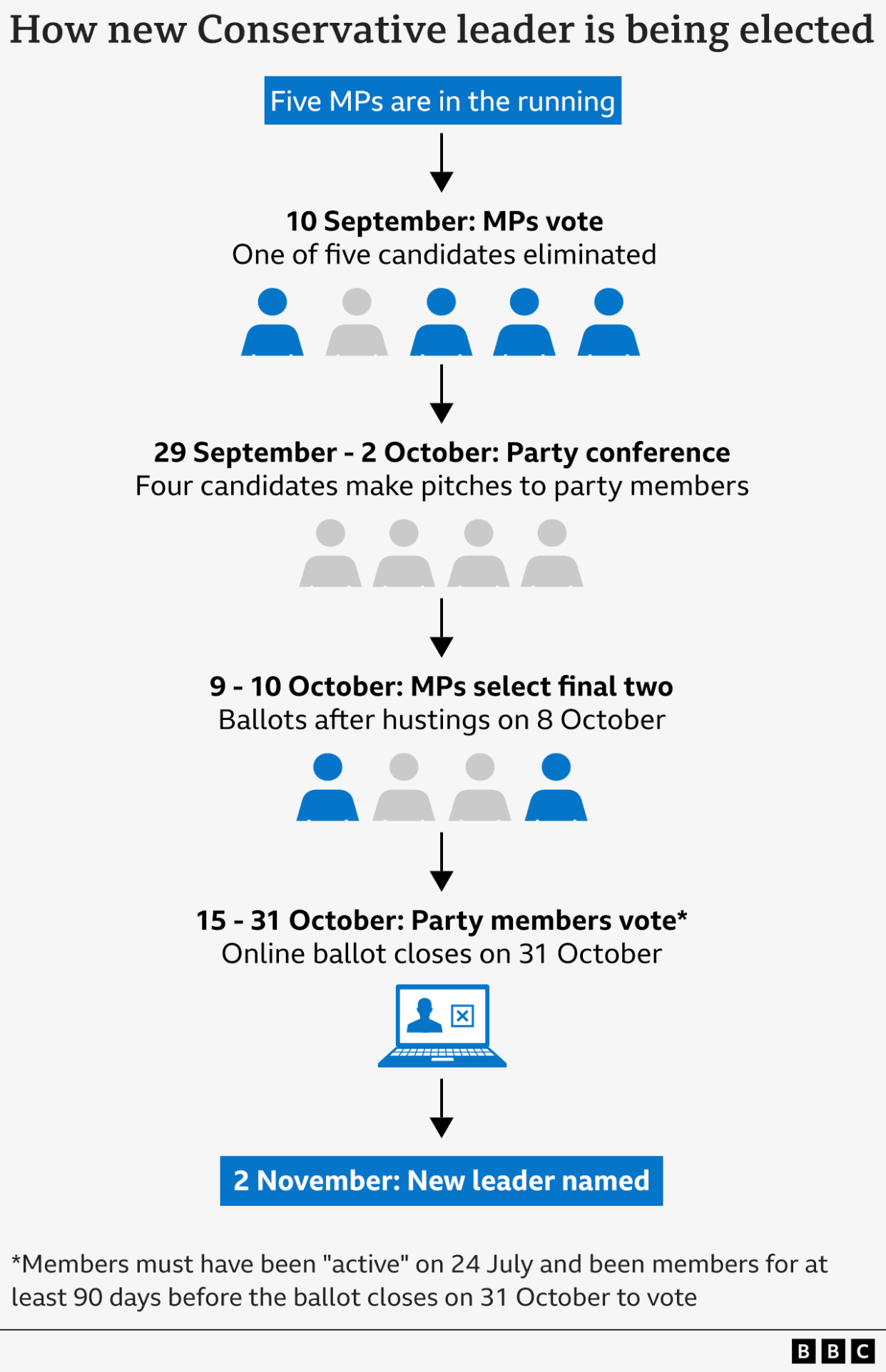
How will the party membership vote work?
Party members will be able to cast their vote between 15 October and 31 October.
They will make their choice via a secure online voting system, though this approach has previously been criticised for its susceptibility to hackers and rogue state interference.
To be eligible to vote, party members must have been active for 90 days before the ballot closed, and to have been party members when nominations opened.
The new leader of the Conservative Party will be announced on 2 November - at which point Mr Sunak will formally stand down.





